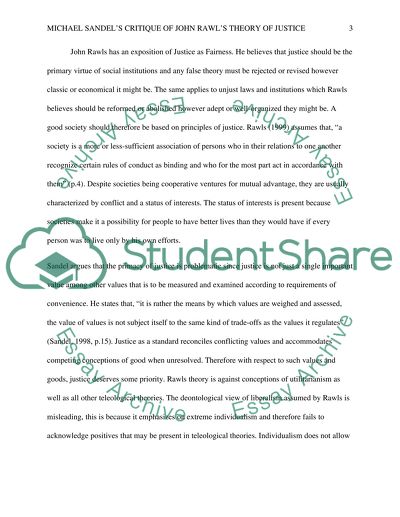Cite this document
(“Michael Sandel's critique of John Rawls' Theory of Justice Essay”, n.d.)
Retrieved from https://studentshare.org/literature/1399093-michael-sandels-critique-of-john-rawls-theory-of-justice
Retrieved from https://studentshare.org/literature/1399093-michael-sandels-critique-of-john-rawls-theory-of-justice
(Michael Sandel'S Critique of John Rawls' Theory of Justice Essay)
https://studentshare.org/literature/1399093-michael-sandels-critique-of-john-rawls-theory-of-justice.
https://studentshare.org/literature/1399093-michael-sandels-critique-of-john-rawls-theory-of-justice.
“Michael Sandel'S Critique of John Rawls' Theory of Justice Essay”, n.d. https://studentshare.org/literature/1399093-michael-sandels-critique-of-john-rawls-theory-of-justice.


